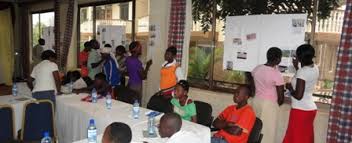The African Population and Health Research Centre (APHRC) conducted a one-day workshop on Friday, September 13, 2024, aimed at media practitioners and civil society organizations (CSOs) to enhance their understanding and reporting of Sexual and Reproductive Health Rights (SRHR). The workshop, held at the Sierra Palms Hotel in Aberdeen, Freetown, brought together a diverse group of participants to discuss strategies for promoting SRHR awareness.
Facilitator Philip Koroma delivered a detailed presentation highlighting the limited interest that journalists often show in health reporting. He pointed out the challenges media professionals face when addressing sensitive topics such as sexual and reproductive health. Koroma emphasized the need for a more proactive approach in covering these crucial areas, stressing that the media has a significant role in sparking national dialogue and promoting positive change.
He also commended the efforts of organizations like Marie Stopes Society for their outreach programs, which provide essential services to underserved communities. He praised both national healthcare providers and international agencies for their contributions to healthcare services across Sierra Leone.
Koroma discussed effective media strategies for engaging with sexual and reproductive health issues, underlining the importance of content creation and storytelling. He encouraged media houses to hold regular production meetings to brainstorm and create impactful content that resonates with their audience. He further emphasized that journalists have a critical role in advancing awareness of SRHR across various media platforms, including television, radio, digital media, blogs, and websites.
During his presentation, Koroma stressed the need for responsible reporting, accurate information, and inclusive content that reflects diverse perspectives. He outlined key practices for reporting on SRHR issues, such as providing balanced information, amplifying marginalized voices, and ensuring journalists are trained on SRHR policies for accurate reporting.
In conclusion, the workshop underscored the potential of journalists to drive meaningful change and promote informed decision-making on sexual and reproductive health matters. By leveraging various media platforms and engaging with diverse audiences, media practitioners can play a crucial role in advancing SRHR awareness and advocacy efforts, ultimately empowering individuals and communities to make informed choices about their sexual and reproductive health.







